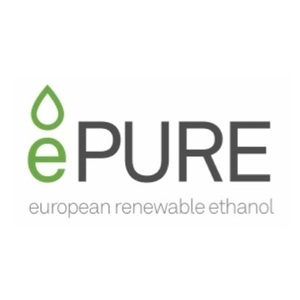ePURE: Ethanol can help Europe reach decarbonization goals

March 31, 2023
BY ePURE
EU energy ministers on March 28 adopted the trilogue agreement for the revision of the CO2 emission standards for cars and vans after Germany secured the implementation of a work-around for vehicles running exclusively on e-fuels.
The Commission’s work plan takes a narrow and counterproductive view of which fuels can be considered ‘CO2-neutral’ to continue to be used in internal combustion engines after 2035, as it excludes all non-synthetic renewable solutions. But there is still time to ensure more flexibility for the use of renewable fuels such as ethanol along with e-fuels to make a real emissions-reduction impact for the long-term.
Advertisement
Advertisement
As EU policymakers set about determining the definition of CO2-neutral fuels in the coming months, they should take into account the significant GHG-reduction score of EU renewable ethanol – 77 percent on average compared to fossil petrol and improving every year.
The proposal of the Commission supported by Germany to limit the scope of CO2-neutral fuels to e-fuels arbitrarily restricts the range of solutions for drivers and car manufacturers. Renewable ethanol is blended today with petrol, displacing about 3.6 billion liters of fossil petrol in road transport each year in the EU and preventing the annual emission of almost 9 million metric tons of CO2eq. The blending of renewable ethanol with e-fuels such as e-petrol will ensure compatibility and performance in thermic vehicles and provide a 100 percent renewable alternative to petrol cars in the current and future fleet.
Policymakers should also consider fuels and engine power trains on an equal footing, based on the full life-cycle of emissions from well-to-wheel and not just at the tailpipe. A recent French study found that hybrid vehicles running with up to 85 percent renewable ethanol (E85) are just as climate-friendly as electric vehicles if the full-life-cycle – including the European electricity-generation mix – is taken into account.
Advertisement
Advertisement
“As several EU Member States argued in the negotiations, Europe still needs more than one solution to achieve meaningful transport de-fossilization,” said David Carpintero, director general of ePURE, the European renewable ethanol association. “Even in the future, the EU should take advantage of important synergies between renewable fuels and synthetic fuels delivering emissions reductions in the cars that Europeans will continue to drive for many years to come.”
Related Stories
Imperial Oil Ltd. on Aug. 1 confirmed it has completed construction and commissioning of its renewable diesel project at the Strathcona refinery near Edmonton, Alberta. The facility began producing renewable diesel in July.
PBF Energy Inc. on July 31 announced the St. Bernard Renewables facility averaged approximately 14,200 barrels per day of renewable diesel production during the second quarter of 2025. Production is expected to expand in Q3.
Sen. Chuck Grassley, R-Iowa, on July 31 pressed Derek Theurer, President Donald Trump’s nominee to serve as under secretary of the U.S. Department of Treasury, on the expected timeline for the release of 45Z guidance.
LG Chem and Enilive have taken a major step toward biofuels growth by breaking ground on Korea’s first hydrotreated vegetable oil (HVO) and sustainable aviation fuel (SAF) production plant in LG Chem’s Daesan Chemical Complex.
Avfuel Corp., the leading independent supplier of aviation fuel and services, is expanding its sustainable aviation fuel (SAF) footprint with the addition of a new, strategic supply point in Denver, Colorado—the first of its kind in the region.
Upcoming Events










